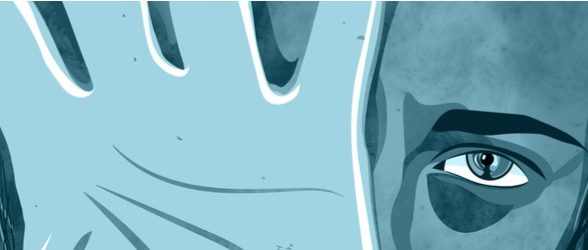How Can Universities Better Support Disabled Students to Graduate?
The Individuals with Disabilities Education Act, Section 504 of the Rehabilitation Act of 1973, and Titles II and III of the Americans with Disabilities Act are all intended to help disabled people successfully receive an education. As a result, far more disabled people are going to and graduating from college. 11% of postsecondary students are disabled — a percentage three times higher than it was 20 years ago — yet we still have a long way to go in the fight for educational equality at the university level.
The six-year graduation rate for all students is 60%, but the percentage is much lower when it comes to disability. For example, it’s only 41% for students with learning disabilities, and 30% for d/Deaf college students. Why are our universities failing to retain and support disabled students through graduation?
“Too many of my disabled students have dropped out,” Dr. Evelyn Chiang, associate professor at UNC-Asheville (UNCA), told me. Many of these students are affected by barriers such as poverty, insufficient educational preparation in primary and secondary school, and a pervasive culture of ableism. However, the biggest issue cited by those I spoke with was the number of students choosing not to disclose disability and seek accommodations.
On a national level, only 1% to 4% of disabled students disclose their disability to their college or university. Why are students choosing to bypass the help they are legally entitled to?
Some students feel like they don’t need accommodations, but Dr. Stephen Kuusisto, senior faculty member at Syracuse University, notes that, “disabled students who don’t identify their needs are often at a very serious disadvantage. […] The work is hard, the demands great, and when students don’t self disclose they often set themselves up for failure.” Other students lack access to the required professional documentation.
“What other group do we require to produce documentation before granting their civil rights?” Ogburn asks.
Amanda Burkhart talked about the lack of support they encountered in the disclosure process, even from their parents. “I felt stranded and broken and completely at fault,” Burkhart told me. “I never reached out for assistance because I didn’t know I could.” Shaun Bryan Ford, who has since returned to school and earned three degrees, was unable to access sufficient accommodation earlier in his academic career and dropped out “due to feelings of isolation and hopelessness having to do with my disability.”
The stigma of a disabled identity holds many students back at from pursuing academic careers. As Chiang pointed out, “We need to work on creating college climates that de-stigmatize disability.”
Students may also choose not to disclose because past disclosure was insufficient, useless, or even harmful. For example, when Nora, a student at a private Christian college, asked her professor for accommodations due to the classes and exams she would miss due to back surgery, that professor demanded she reschedule the surgery. Disability services told her it “wasn’t their job to help with those types of things.”
In our discussions, everyone repeatedly mentioned the importance of strong and visible disability communities on campus, comprised of not just disabled students but also disabled faculty and staff, as an antidote to stigmatization and negative experiences.
Ford credited disabled community for his success when he returned to university with a formal diagnosis. “The way we tend to talk about disability is punitive–it spreads a culture of shame and fear about people knowing you are disabled. If we felt more pride, more of a claiming of disability and our differences, then we would not feel so ashamed of not being like everyone else,” he told me.
Carolyn Ogburn, Coordinator of UNCA’s Office of Academic Accessibility spoke of the university’s strong disability culture: “I’m very proud of this university for being one of the few in the nation to have a Disability Cultural Center.”
Chiang, also very involved in UNCA’s disability culture said, “We need to actively work in order for universities to include disability as a form of diversity. Many universities define diversity in terms of skin color (race/ethnicity), sexual orientation, and gender identity. All of these are important. But these same universities leave out disability regularly. Disability is not automatically included in diversity efforts. It must be.”
Everyone I interviewed also mentioned the difference openly disabled professors can make. “Disabled students need to see disabled mentors at every level of the University, and so do their nondisabled peers,” Ogburn said. Moreover, disabled staff can contribute to the larger conversations surrounding principles of inclusive education. “As a blind professor,” Kuusisto said, “I aim to encourage imaginative thinking when it comes to how we teach, use technology, plan or develop physical space, and celebrate our students and colleagues.” Chiang also underlined the importance of inclusive, accessible education techniques. “I need to present content in an accessible way so that students can learn; I need to make accommodations so that students can demonstrate their learning.”
Reducing disability stigma and increasing accessibility for everyone — not just for those with sufficient privilege to secure official documentation of need — are key to raising retention and graduation rates.
Ogburn reflected, “If I’m doing my job effectively, I’m working my way out of a job every day, because accessibility for all should be the floor of what we expect from our public spaces and institutions, rather than the ceiling.”
We cannot hope for truly equal footing in the world of work until we can resolve discrimination and ableism at every level of education. We must embrace building disability community in academia, encouraging disabled students to take advantage of accommodations, and expanding accessibility in order to grow universities that serve the needs of all.
About Rooted In Rights
Rooted in Rights exists to amplify the perspectives of the disability community. Blog posts and storyteller videos that we publish and content we re-share on social media do not necessarily reflect the opinions or values of Rooted in Rights nor indicate an endorsement of a program or service by Rooted in Rights. We respect and aim to reflect the diversity of opinions and experiences of the disability community. Rooted in Rights seeks to highlight discussions, not direct them. Learn more about Rooted In Rights



